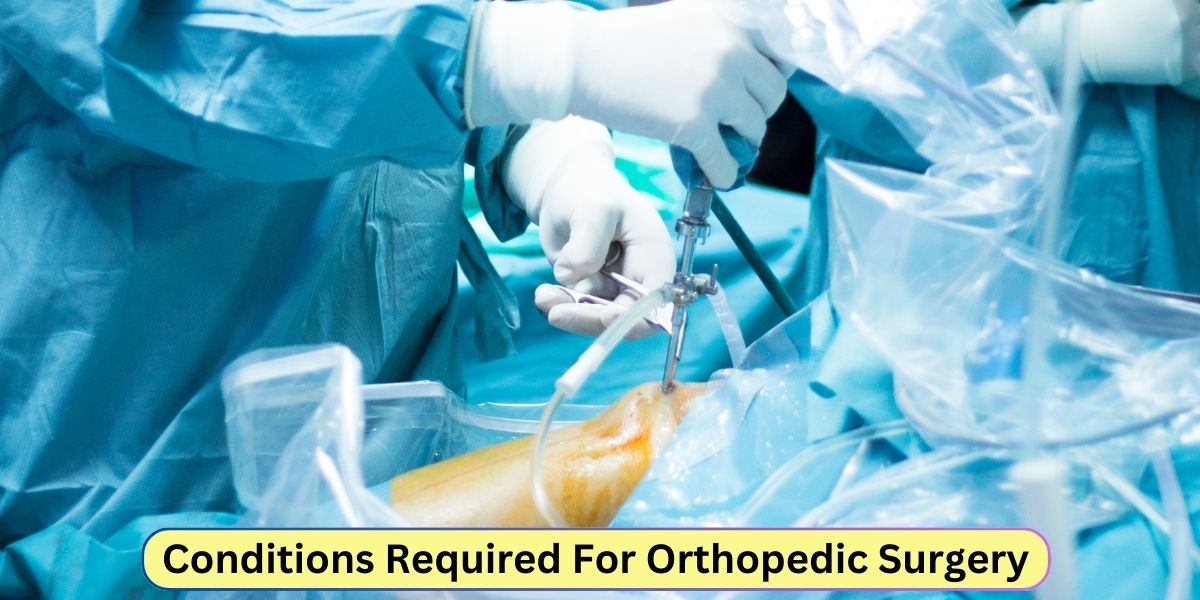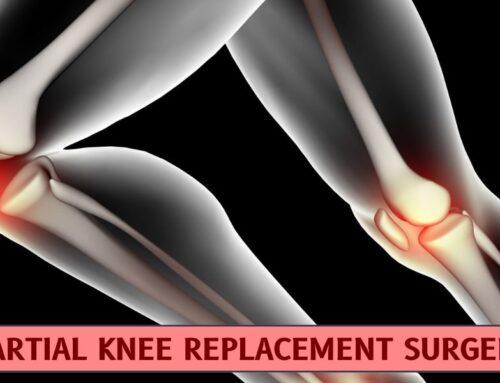Conditions Required for Orthopedic Surgery
Orthopedic surgery is a specialized field of medicine that focuses on the musculoskeletal system, including bones, joints, muscles, ligaments, tendons, and nerves. Various conditions may warrant orthopedic surgery, and common indications include:
- Fractures – Surgical intervention may be necessary to realign and stabilize broken bones, promoting proper healing.
- Joint Disorders – Conditions like osteoarthritis, rheumatoid arthritis, or traumatic injuries to joints may require surgical intervention to alleviate pain and improve joint function.
- Soft Tissue Injuries – Tears or damage to ligaments, tendons, and muscles may necessitate surgical repair, especially if conservative treatments are ineffective.
- Spinal Conditions – Herniated discs, spinal stenosis, scoliosis, and other spinal abnormalities may require surgical correction to alleviate pain and prevent further complications.
- Orthopedic Trauma – Severe injuries, such as crush injuries or multiple fractures, may require surgery to restore normal anatomy and function.
- Sports Injuries – Athletes experiencing severe injuries, such as torn ligaments (e.g., ACL tears) or fractures, may require orthopedic surgery for optimal recovery.
- Congenital Conditions – Some individuals are born with orthopedic conditions, such as hip dysplasia or clubfoot, which may require surgical correction to improve function and prevent long-term complications.
- Infections – Orthopedic surgery may be necessary to remove infected tissue or drain abscesses caused by bacterial or fungal infections in bones or joints.
- Tumors – Surgical intervention may be required to remove benign or malignant tumors affecting the musculoskeletal system.
- Deformities – Conditions leading to deformities, such as limb length discrepancies or angular deformities, may require surgical correction to improve function and appearance.
Dr. Vinil Shinde, a well-regarded orthopedic surgeon in Kothrud, stresses the importance of trying other treatments like physical therapy before considering surgery. Surgery is only recommended if the condition is severe and other treatments haven’t worked. Dr. Shinde works closely with patients to create a personalized treatment plan for them.
FAQs
What is the recovery time after orthopedic surgery?
The recovery time varies based on the type of surgery and individual factors. Generally, patients can expect a period of restricted activity followed by a gradual return to normal function. Your orthopedic surgeon will provide specific guidelines for your recovery.
Are there non-surgical alternatives for orthopedic conditions?
Many orthopedic conditions can be initially managed with non-surgical treatments such as physical therapy, medications, and lifestyle modifications. Surgery is typically considered when conservative measures do not adequately address the problem or if the condition is severe.
What risks are associated with orthopedic surgery?
Like any surgical procedure, orthopedic surgery carries some risks, including infection, bleeding, and adverse reactions to anesthesia. Your surgeon will discuss potential risks and complications during the preoperative consultation, allowing you to make an informed decision.
How do I prepare for orthopedic surgery?
Preparing for orthopedic surgery involves a collaborative effort between you, your surgeon, and the healthcare team. It may include preoperative evaluations, lifestyle adjustments, and discussions about postoperative care. Following your surgeon’s preoperative instructions is crucial for a successful outcome.
When is physical therapy recommended after orthopedic surgery?
Physical therapy is often a key component of orthopedic surgery recovery. It is typically recommended to help restore strength, flexibility, and function. The timing and intensity of physical therapy will vary based on the type of surgery and the individual patient’s needs. Your surgeon will guide you on when to start and what to expect from physical therapy.




